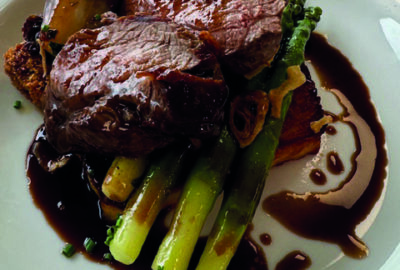Customers abandoning their restaurant reservations is costing the hospitality sector around £17.6 billion a year. Recent findings from The Go Technology report from Zonal and CGA reveal that the worst offenders are younger people with more than a quarter (28%) of 18-34 year olds not honouring their bookings, compared to 1% of those aged 55 and over.
As a result of the research, hospitality organisations including Zonal, CGA, UKHospitality, Bums on Seats and Wireless Social have joined forces to introduce a campaign called #ShowUpForHospitality. The campaign aims to demonstrate to customers the impact of not showing up for reservations, as well as providing tips for operators to help them cope with the issue.
Educating customers on the effects of no shows is crucial. There has been much controversy over charging cancellation fees, however an increasing number of operators are considering this route as the issue of no shows continues to bite. Jane Pendlebury, CEO of the Hospitality Professionals Association (HOSPA) says “By bringing in cancellation fees, restaurants will help people understand the implications of no shows and give them reason to pause and reconsider doing so. Taking a booking deposit or holding credit card details in case of cancellation offers a level of insurance to your business, while also diminishing the revenue impact of no shows. Finding the right cancellation fee to match your offering is important as, if this is too high, you could discourage booking in the first place.”
To combat no shows at Bao + BBQ restaurant in Cheltenham, the team asked customers to enter their credit card details at the time of booking. Emily Redman says “We were worried this would put people off booking, but we’ve found people are understanding and happy to do that. We use ResDiary the online reservation system. It sends an automatic email when the booking is made and again, just before the booking date. In the case of a no show, £10 per head is automatically charged to the card.”
At Annie’s Burger Shack restaurants in Nottingham and Derby, their booking system sends customers an alert asking them to confirm their booking and in many cases, this works. Daniel Griffiths adds “Not everyone will respond, which is why every morning we telephone every customer and ask them if they will want their table that evening. This gives them a chance to tell us if there is a change in numbers or if they can’t make it. We feel this helps us to create a positive relationship at a time when the industry has lost a lot of human interaction. Since we’ve been doing this, there has been a notable decrease in no shows. It might not suit everyone as it takes a certain level of staffing.”
Making it easy for people to cancel their booking via a single click a mobile device or computer is also an idea that many are adopting. Jane says “If a restaurant is using an outdated booking system or even traditional pen and paper, you’re making it difficult for customers to cancel which could, in turn, cause them to do nothing and not show up. It’s often stated that Millennials are reluctant to use the phone so whether that’s true or not, make it as easy as possible for them to let you know if they have to cancel without having to call. This is something that’s usually incorporated in the latest booking management software. Even if this cancellation occurs on the evening itself, you can still give a table to walk-ins, safe in the knowledge that the booking won’t be turning up – even last minute cancellations are better than a no show.”


